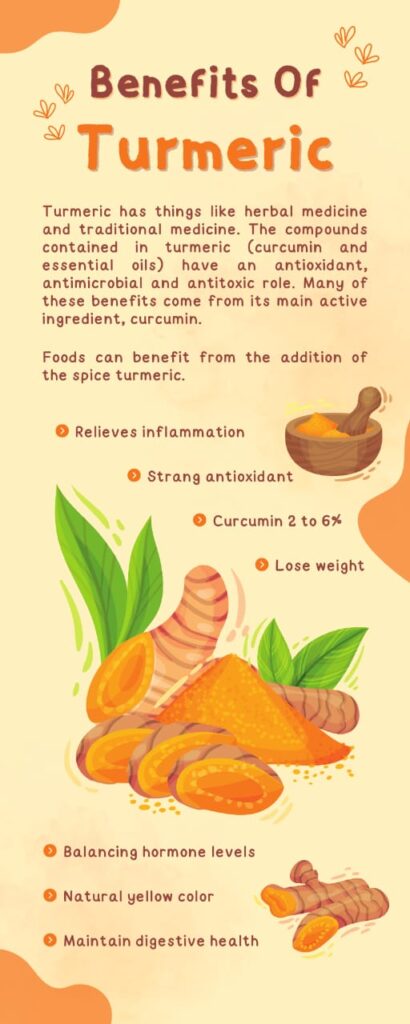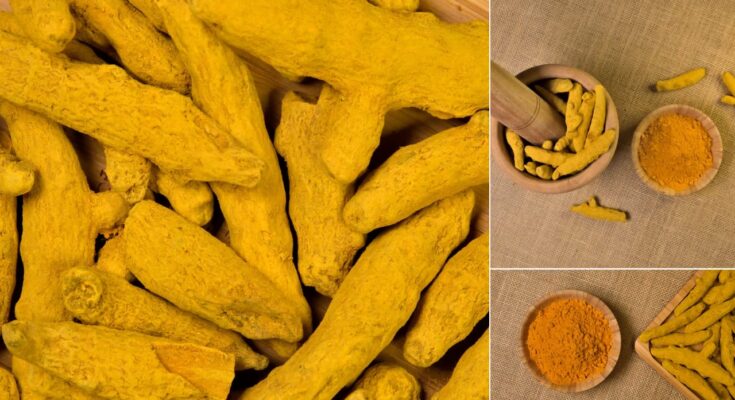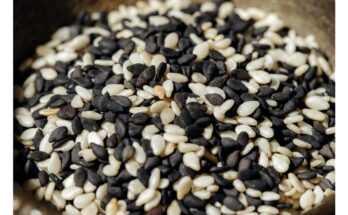Turmeric (Curcuma longa) is a remarkable plant known for its versatility in cooking, health, and natural beauty. With its vibrant yellow color, turmeric serves as a flavorful spice, a natural dye, a beauty enhancer, and a trusted home remedy for various ailments.
Typically used as an everyday spice, turmeric is derived from its rhizomes, which are harvested, cleaned, steamed, and then dried. These rhizomes have a dense, yellow-brown appearance with visible leaf scars, while their inner flesh is a rich, dark orange and aromatic despite being dry.
Curcumin, turmeric’s primary active compound, gives it its intense yellow hue and is particularly concentrated in the rhizomes. Traditionally, turmeric has been valued as a medicinal spice. Ancient practices recommended it for strengthening the stomach, stimulating digestion, and purifying the blood.
Known for its numerous health benefits, turmeric acts as a tonic, stimulant, and carminative. It aids in balancing nutrition and helps restore overall health. Its properties as an antiseptic, anti-flatulent, and blood purifier make it valuable in treating various conditions.
For bronchial asthma, taking a teaspoon of turmeric powder with a glass of milk two to three times daily can help alleviate symptoms, especially on an empty stomach. Bronchitis can be treated by adding half a teaspoon of turmeric powder and a pinch of black pepper to hot milk and drinking it before bed. To treat eosinophilia, a teaspoon of turmeric powder mixed with 30 grams of honey can be consumed three times a day for three months.
As an intestinal antiseptic, turmeric juice or powder, when mixed in buttermilk or water, can relieve chronic diarrhea and prevent flatulence. Turmeric also inhibits bacterial growth, promoting a clean and healthy digestive system.
With its antiseptic effects, turmeric is helpful for chronic coughs and throat irritation. A mixture of half a teaspoon of turmeric powder and 30 ml of warm milk can ease these conditions. Additionally, a recipe including turmeric, caraway seeds, pepper, cinnamon, and ginger boiled with milk and water provides a comforting remedy for cough and allergies.
Turmeric is also beneficial for jaundice; a pinch of its powder in hot water two to three times a day can support recovery. Furthermore, fresh turmeric juice has antiparasitic properties and is useful in treating skin issues like ringworm and scabies when applied externally. Drinking turmeric juice with honey can further aid skin healing.
As a beauty aid, turmeric paste is excellent for enhancing complexion and reducing unwanted hair. Mixed with milk-cream, sandalwood, and besan (gram flour), it can be applied daily for soft, glowing skin. Combined with amaranth leaf juice, it serves as a skin bleach, reduces dryness, and prevents wrinkles and pimples.
A mixture of turmeric powder with coriander juice is an effective nightly remedy for pimples, blackheads, and dry skin.
Beyond its medicinal and cosmetic uses, turmeric is essential in the culinary world, especially in curry powder, where it provides a warm, musky flavor and distinct yellow color. It’s widely used to color butter, cheese, mustard, pickles, and various foods, as well as in beverages, jellies, and baked goods. Turmeric also holds cultural significance in Hindu rituals and serves as a natural dye in food, pharmaceuticals, and confections.
Nutritive value per 100 g of turmeric
Carotene (µg) : 30
Folic acid (µg) : 18
Niacin (mg) : 2.3
Calcium (mg) : 150
Phosphorus (mg) : 282
Iron (mg) : 67.8





